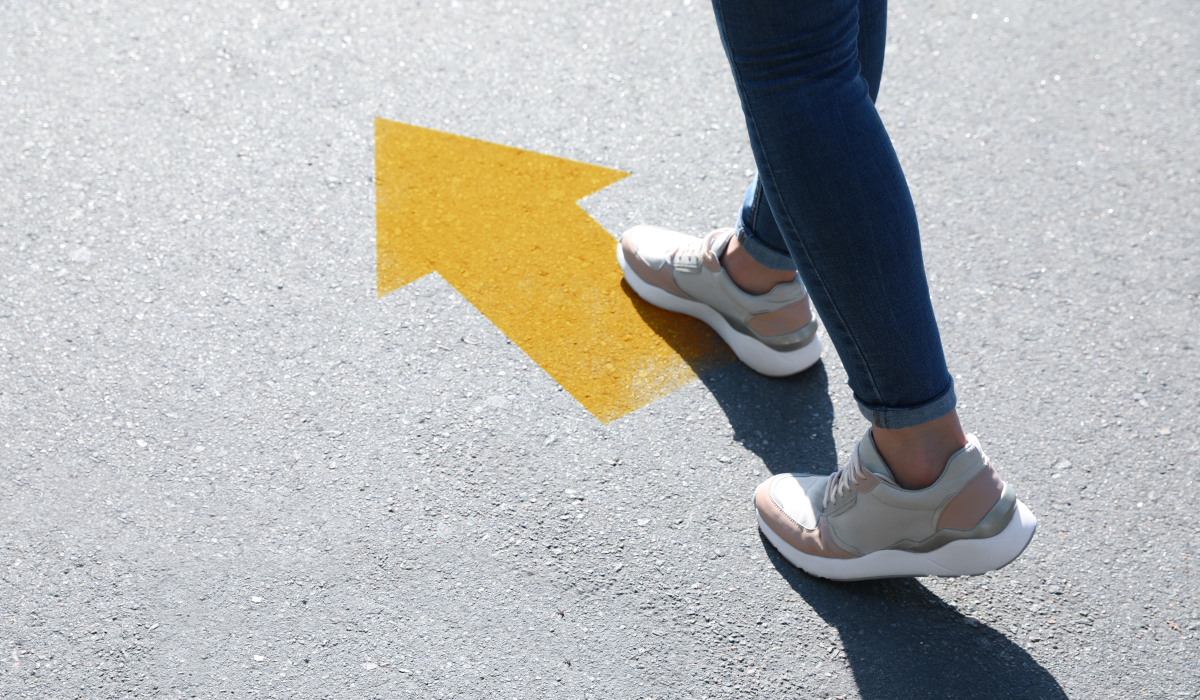Things you'll learn here |
Starting an exercise schedule doesn't have to be as daunting as some make it out to be. If you want to go to the gym seven days a week and work up a sweat, that's fine. But the reality is that so long as you do the math, even low-intensity exercise can have you shedding the pounds.
Walking is a great form of moderate-intensity exercise that boasts a treasure trove of health benefits. It is a simple, free, and effective way to become more active, lose weight, and improve your overall health.
Even a short walk each day can be great for both your physical and mental health, and if you walk with a friend or family member, it can become a great social event, too.
How much physical activity you want to take on is up to you, but if you want to ditch sedentary behaviors, increase your fitness level, and burn calories, it's time to get moving.
So lace up your shoes, and let's get walking.
How many steps should you take?
Exactly how many steps a day you take is up to you, as is your walking pace. But the faster, farther, and more frequently you walk, the greater the benefits.
Using your step count as a guide is a simple and effective way of tracking your progress, but what is the magic number?
Should you be doing 10,000 steps a day?
If you ask regular walkers how many daily steps you should do, they'll usually tell you that walking 10.000 steps should be your target. There has yet to be a systematic review as to why walking 10,000 steps per day is the desired number. This figure appears to have been invented by a watch company, and there appears to be no medical science behind it.
Certainly, walking 10,000 steps a day is a great benchmark, but it will very much depend on the number of calories you're consuming.
Consistency is key and the more steps you get in, the more calories you'll burn. And, by setting realistic targets that you can stick to, you’ll reap all of the benefits of walking over time. Step counting is a great way to track your progress, and motivate yourself.
So, in conclusion…you do you.
Why is walking important?
Walking is considered to be a moderate-intensity exercise. But it has significant benefits to health— and when combined with a healthy diet, can have a big effect on weight loss.
If you're new to exercise, increasing your step volume each day can increase your present fitness level significantly.
In fact, research shows that even moderate exercise can have a huge effect on weight loss efforts.
A sedentary lifestyle can cause health issues, like cardiovascular disease, high blood pressure, and obesity—it can affect your mood, too.
Walking increases your heart rate, which is great for cardiovascular health and has tremendous mental health benefits.
The big benefits of walking include…
- Improved muscle strength
- Increased chance of weight loss
- Better energy levels
- Better cognitive health
- Reduced stress
- Better immunity
- Greater cardio health and lower risk of heart disease
So it's not just your body weight that will benefit from walking; there are other factors to consider, too. Walking is an exercise that will suit nearly everyone, especially those who get bored with going to the gym and repeating the same exercises over, and over again.
One of the main benefits of walking is the mental stimulation it provides. You can choose a different route each day, and it gets you outside in the fresh air.

How can you lose weight by walking?
The science behind weight loss is simple…you need to burn more calories than you consume. Balancing it out means watching what you eat and making sure you move a little more often. And walking is a low-intensity exercise that can help you do just that.
Many people choose to use their step count as a way of monitoring their progress. Step counts can be measured through a fitness app by using a step counter, and you can track your steps per day until you reach your target.
Walking burns calories in the same way as other forms of exercise and it's an easy one to get into, regardless of your current fitness level. You can set your daily step count at a target you feel comfortable with, gradually increase it, and walk further each day.
The trick is to stay on your feet as much as possible. Try simple hacks to get yourself moving more such as taking the stairs instead of the elevator or parking further down the road to up your steps to your destination. Get walking, get moving, and be creative. You’ve got this.
How many calories will walking burn?
This can depend on a number of factors, such as your weight, pace, and whether you're walking on a level surface or uphill.
For example, someone weighing 150 pounds, walking at a slow pace on a level surface would burn around 250 calories per hour.
The faster you walk, the more calories you will burn per hour, so the same person walking twice the speed would burn 500 calories. Walking uphill would burn even more.
As you progress with your walking, try adding in some higher-intensity walks, by adding hills and more challenging terrain to boost the calorie burn further.
How to increase your steps
The best advice is to find your baseline, track it, set a sensible target, and try to improve it. If walking 10,000 steps each day sounds achievable, that's great.
The number of steps you decide on should be an achievable amount for you when you start walking regularly, then you can gradually build on it week by week. Even just utilizing more energy than you're using now is going to be beneficial to your weight loss.
Some of the best ways to increase your daily steps include…
Dedicating more time to walking each day
Try to manage your time better to enable you to get some more steps in. This can include getting up earlier and walking before breakfast. Using your lunch hour to get in some extra steps is a great idea, and sixty minutes should bag you between 6,000 and 8,000 steps.
Being creative
Walking rather than using other methods of transport will get your step counts higher. For short journeys, try to use your legs rather than a car if you have time.
If you have the option of using either a moving staircase or stairs, go for the latter. Remember, the more you move, the more calories you’ll burn, so don’t miss an opportunity.
Brisk walking
Crank up the pace for additional calorie burn! A great way to increase the number of steps you complete each day is by simply walking faster. If you have an hour to dedicate to walking each day, you should be able to add at least an extra 4,000 steps simply by moving more quickly.
Get a walking buddy
Someone who is on the same weight loss journey as yourself will be a great asset—and when you’re chatting to someone—you won’t see walking as an exercise. It’ll be more of a social event. It will also help to spur you on to have someone by your side, and you can even challenge each other by walking further each day.
Challenge yourself
Don't be afraid to get competitive with yourself. If you can manage 70,000 steps in a week, why not try and make that 75,000 the following week?
Once you become familiar with walking regularly, you’ll feel more comfortable with it and will be more likely to want to increase the distance and time you’re on your feet. Apps are great for setting benchmarks and raising them to help you improve your level of fitness.
Set a reminder each day
Once you get into walking as an exercise, it will become a regular feature of your daily routine. But until it does, it’s a great idea to set a reminder each day. A simple alarm setting that will spur you into action will act like a personal trainer to spur you into action.
Walking won't replace a healthy diet, but it's a form of physical activity that can form an important part of your weight loss journey as it helps to increase energy expenditure. Walking is a highly beneficial form of exercise, accessible to most people, and can be easily incorporated into daily routines to promote better health and wellbeing.
Exercise is an important part of losing weight and staying healthy, and the benefits of walking are numerous.
The number of steps you walk each day is your personal choice, but remember that the higher your step counts, the more calories you'll burn. 10,000 steps a day is certainly a good benchmark to aim for, and challenging yourself to do more is a good frame of mind to get into.

Get the balance right
Try to get the calorie balance right through your diet so that you're burning more calories than you're consuming. By switching higher-calorie foods with nutritious low-calorie whole foods, you can give yourself the best chance of losing weight.
Remember, if you can reduce the calorie intake and increase the calorie burn, you’ll be moving in the right direction.
To give yourself the best chance of walking yourself to weight loss and join other PhenQ stepping legends just like you, download our step tracker today.



